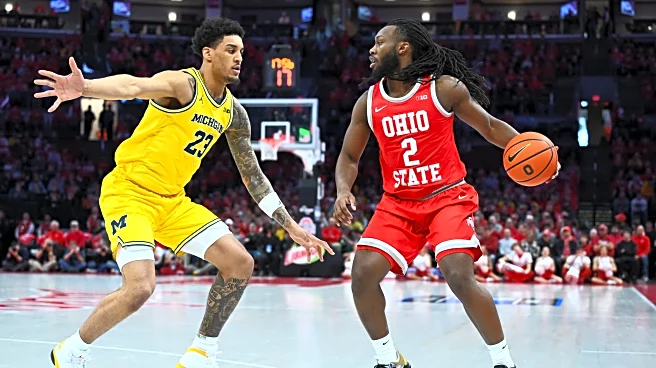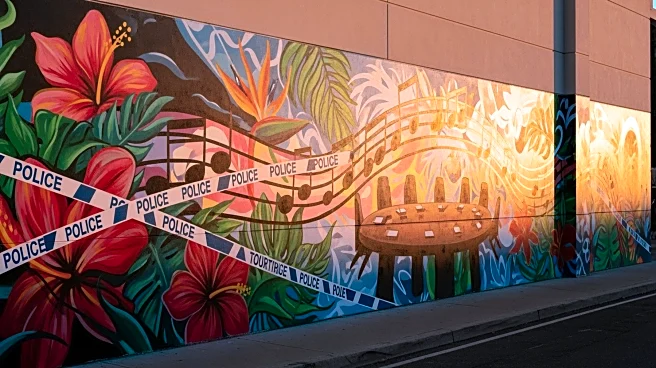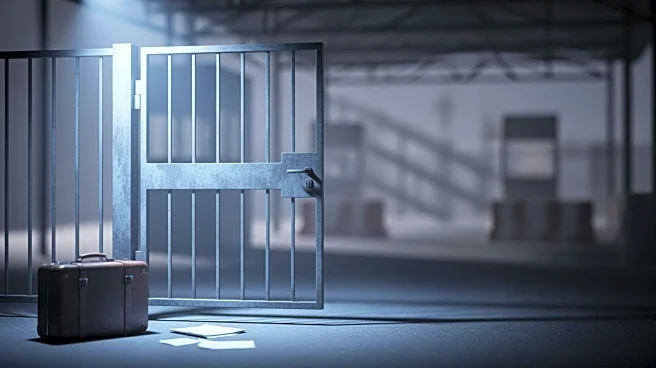What's Happening?
Cosm, an immersive venue in Inglewood, has launched a multisensory experience of the classic film 'Willy Wonka and the Chocolate Factory.' This initiative is part of a broader trend in 'experimental cinema,' where older films are augmented with modern technologies like CGI animation. The venue features a spherical screen that envelops viewers, creating an immersive environment that combines visual effects with the original film. The experience includes interactive elements, such as digital fireworks and animated sequences, designed to enhance the whimsical nature of the film. Cosm's approach aims to redefine the moviegoing experience by offering a shared reality that is both intimate and communal.
Why It's Important?
The reimagining of 'Willy Wonka' at Cosm represents
a significant shift in how audiences engage with cinema. By integrating advanced technologies, venues like Cosm are transforming traditional film viewing into interactive and immersive experiences. This could have a profound impact on the entertainment industry, potentially attracting new audiences and increasing revenue streams. The approach also raises questions about the balance between preserving the original essence of classic films and enhancing them with modern technology. As more venues adopt similar strategies, the industry may see a rise in experimental cinema, influencing how films are produced and consumed.
What's Next?
Cosm plans to continue its exploration of immersive cinema with future projects, including a reimagined version of 'Harry Potter and the Sorcerer's Stone.' As the venue expands its offerings, it may influence other entertainment companies to adopt similar technologies. The success of these ventures could lead to more widespread adoption of immersive experiences in theaters across the country. Stakeholders in the film industry, including producers and directors, may need to consider how to integrate these technologies into their projects to stay competitive.
Beyond the Headlines
The trend towards immersive cinema raises ethical and cultural questions about the preservation of classic films. While the technology offers new ways to experience these stories, it also risks overshadowing the original artistic intent. This development could lead to debates about the authenticity of film adaptations and the role of technology in storytelling. Additionally, the focus on multisensory experiences may shift audience expectations, potentially influencing the types of films that are produced and how they are marketed.















